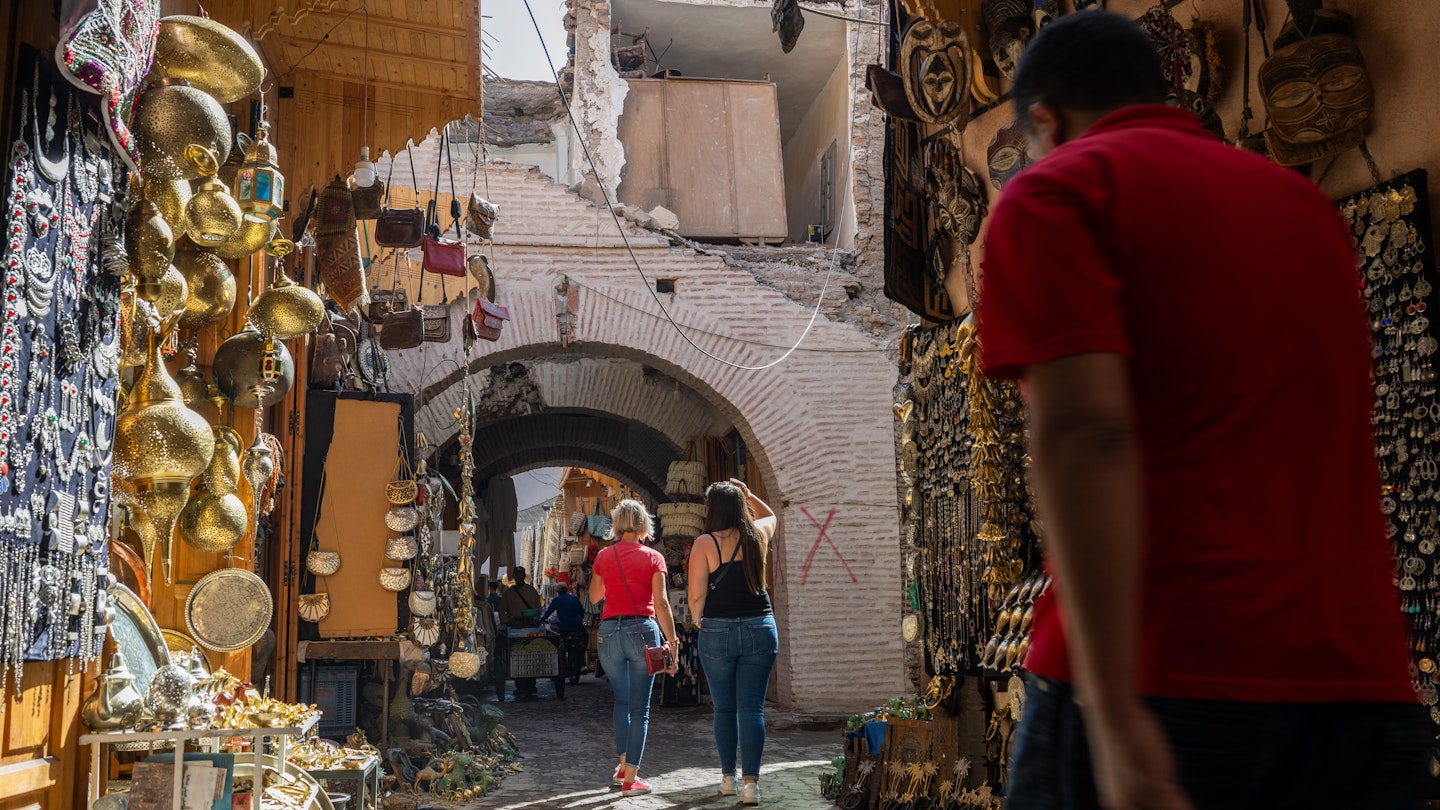Oct 3, 2023 • 4 min read

As anyone who has visited Morocco will tell you, it’s the local people who make any trip there truly memorable. The hospitality and kindness you experience will stay with you long after you’ve returned home. But should you be planning a journey to the beguiling country after the devastating earthquake in September 2023?
A Devastating Disaster
“Despite being in shock after the quake,” says expert Nawfal Serhir, “the people we met when we delivered aid to villages around Taroudant were as welcoming as ever. Even though many were homeless and grieving, they still greeted us warmly with a smile.”
The 6.8-magnitude earthquake struck just after 11 PM on Friday, September 8, devastating remote villages in the High Atlas Mountains, killing more than 3,000 people and injuring almost twice that number. Traditional homes built of rammed earth collapsed, while concrete buildings such as shops and schools cracked and fell apart at odd angles.

The government responded quickly, sending heavy machinery to clear the roads for relief efforts. Where earthmovers couldn’t proceed, helicopters delivered doctors and firefighters, while soldiers brought supplies on foot with the help of mules. Both local and foreign aid agencies have provided food and warm clothing, and King Mohamed VI was among many who donated blood. Moreover, he has announced significant compensation for those whose homes were damaged or destroyed.
The earthquake was perplexingly choosy, razing one village while sparing another in the next valley. Many affected are now living in tents, with their homes deemed unsafe. Despite the tragic circumstances, a rebuilding program is already underway, although winter is fast approaching.
Located some 60 miles north of the earthquake’s epicenter, the city of Marrakesh remains Morocco’s premier tourist destination. Although a few lives were lost in the city and some buildings were damaged, the majority of this cultural hub remains intact. Some historic sites are currently closed for structural assessments.
Your Visit is Vital
Considering these factors, potential visitors may wonder if they should proceed with their travel plans. The answer is a resounding yes. In fact, visiting soon is essential for local relief efforts. Your presence supports the economy and bolsters local jobs, helping communities to rebuild and recover.

What to Expect When Visiting Morocco

Explore More of Morocco
Although the earthquake caused significant damage primarily in the High Atlas and Marrakesh, many fabulous places across Morocco remain open to visitors. Fez boasts an ancient medina filled with stunning architecture, while Chefchaouen envelops visitors in its distinctive blue hues. You can also surf along the coast, ride camels across Saharan dunes, and savor the delights of Moroccan cuisine. Hiking opportunities abound, such as the scenic cedar forests and gentle slopes of the Middle Atlas and the northern Rif Mountains.
Regardless of where you are, whether in a vibrant city riad or a rustic lodge, the resilient Moroccan people will welcome you with their warmth and hospitality.
Ways to Help
People in the mountains are in dire need of warm clothes, shoes, and blankets to prepare for the winter months ahead. Consider purchasing supplies locally, and if you’re in Marrakesh, visit Café Clock, which serves as a collection point for donations of any kind. If you venture into the mountains, ask your guide about any specific needs that residents may have.





